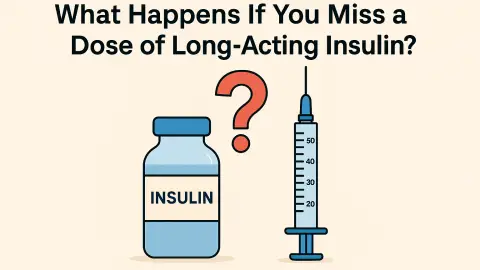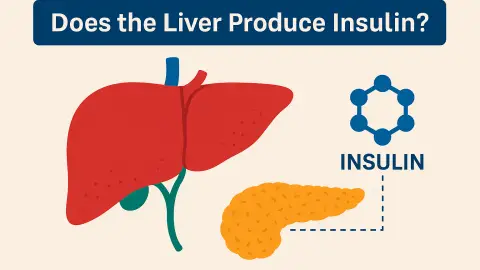Insulin overdose can be life-threatening, but being prepared with the right information can help you or your loved one in an emergency situation. Read on to learn more about how to prevent insulin overdose and what to do if it happens.
Introduction:
Insulin is a hormone that helps regulate blood sugar levels in the body. For people with diabetes, insulin is a lifesaver as it helps keep their blood sugar levels within a healthy range. However, an overdose of insulin can be dangerous and even life-threatening. This critical guide will provide you with essential information on how to prevent insulin overdose, recognize the symptoms, and what to do in an emergency situation.
Insulin overdose: Dosage, symptoms, and treatment
| Topic | Information |
|---|---|
| Cause of insulin overdose | Too much insulin taken or injected, leading to hypoglycemia or low blood sugar. |
| Symptoms of insulin overdose | Sweating, shakiness, dizziness, confusion, hunger, headache, irritability, blurred vision, rapid heartbeat, fatigue. In severe cases: seizures, loss of consciousness, or coma. |
| Duration of insulin overdose | Can vary depending on the amount of insulin taken and individual factors. Symptoms can last for several hours, but may persist for longer periods in some cases. |
| Can Insulin overdose cause a heart attack? | While an insulin overdose alone is not likely to cause a heart attack, severe hypoglycemia or pre-existing heart conditions may increase the risk. |
| Treatment for insulin overdose | Immediate medical attention, monitoring of blood sugar levels, consumption of fast-acting sugar or glucose, and prevention of further complications. |
Be Prepared for an Insulin Overdose with This Critical Guide:
Preventing Insulin Overdose:
- Follow your doctor’s instructions carefully when taking insulin. Your doctor will prescribe the appropriate amount of insulin you need to take based on your individual needs and health status.
- Always check the insulin dosage before taking it. Make sure that you are taking the right amount of insulin, as prescribed by your doctor.
- Keep a record of your insulin doses. This will help you keep track of how much insulin you are taking and when you took it. You can use a logbook or an app to record your doses.
- Know the signs of hypoglycemia (low blood sugar). Symptoms include shakiness, confusion, irritability, dizziness, and sweating. If you experience these symptoms, check your blood sugar level and treat it immediately.
Recognizing the Symptoms of Insulin Overdose:
- Symptoms of insulin overdose include sweating, shaking, confusion, and dizziness.
- Severe symptoms may include seizures, loss of consciousness, and coma.
- If you or someone you know experiences these symptoms, seek medical attention immediately.
What to Do in an Emergency:
- If you suspect an insulin overdose, call 911 or your local emergency number immediately.
- If the person is unconscious or having a seizure, roll them onto their side and clear their airway.
- Check their blood sugar level and give them glucose tablets, a sugary drink, or an injection of glucagon if it is available.
- Stay with the person until medical help arrives.
How long does an insulin overdose last
If you or someone you know has accidentally taken too much insulin, it’s important to understand how long an insulin overdose can last and what steps to take. An insulin overdose can occur when too much insulin is taken or injected, leading to hypoglycemia (low blood sugar). This can cause a range of symptoms and, in severe cases, can be life-threatening.
The duration of an insulin overdose can vary depending on the amount of insulin taken and individual factors such as age, weight, and overall health. In general, the symptoms of an insulin overdose can last for several hours, but they may persist for longer periods in some cases.
It’s important to seek medical attention immediately if you or someone you know has taken an insulin overdose. A healthcare professional can monitor blood sugar levels, provide treatment for hypoglycemia, and take steps to prevent further complications.
If you are experiencing symptoms of hypoglycemia, such as sweating, shaking, dizziness, confusion, or difficulty speaking, it’s important to act quickly. Eating or drinking something with sugar, such as fruit juice or candy, can help raise blood sugar levels. However, in severe cases, emergency medical attention may be necessary.
Moreover, an insulin overdose can cause hypoglycemia and a range of symptoms. The duration of an insulin overdose can vary depending on the amount of insulin taken and individual factors. If you or someone you know has taken too much insulin, seek medical attention immediately and take steps to raise blood sugar levels if necessary.
Can Insulin overdose cause a heart attack?
Insulin can lead to an insulin overdose and potentially cause serious health complications. One of the concerns that people may have is whether an insulin overdose can cause a heart attack.
Insulin overdose can cause hypoglycemia, which is a condition characterized by low blood sugar levels. Hypoglycemia can lead to a range of symptoms, including dizziness, confusion, sweating, and in severe cases, loss of consciousness. While hypoglycemia can be dangerous, it is not usually associated with causing a heart attack.
However, if hypoglycemia is left untreated or if too much insulin is taken, it can cause severe stress on the body, which can lead to complications such as a heart attack. This is because hypoglycemia can cause the body to release stress hormones like adrenaline and cortisol, which can cause an increase in heart rate and blood pressure. In individuals with pre-existing heart conditions, this can put additional strain on the heart and increase the risk of a heart attack.
It’s important to note that an insulin overdose alone is not likely to cause a heart attack. However, if an insulin overdose leads to severe hypoglycemia or if an individual has pre-existing heart conditions, it may increase the risk of a heart attack.
Insulin overdose symptoms
Some of the most common insulin overdose symptoms include:
- Sweating: Hypoglycemia can cause excessive sweating, even in cool temperatures.
- Shakiness: Hypoglycemia can cause tremors or shaking, especially in the hands.
- Dizziness: Hypoglycemia can cause dizziness or lightheadedness.
- Confusion: Hypoglycemia can cause confusion or difficulty thinking clearly.
- Hunger: Hypoglycemia can cause hunger, even if a meal has recently been eaten.
- Headache: Hypoglycemia can cause headaches or migraines.
- Irritability: Hypoglycemia can cause irritability or mood changes.
- Blurred vision: Hypoglycemia can cause blurry or impaired vision.
- Rapid heartbeat: Hypoglycemia can cause an increased heart rate.
- Fatigue: Hypoglycemia can cause fatigue or weakness, even if adequate rest has been obtained.
In severe cases, an insulin overdose can cause more serious symptoms such as seizures, loss of consciousness, or coma. It’s important to seek medical attention immediately if an insulin overdose is suspected or if symptoms of hypoglycemia are experienced. Treatment may involve consuming a source of fast-acting sugar or glucose, such as fruit juice or candy, and monitoring blood sugar levels.
FAQs:
Q: What should I do if I accidentally inject too much insulin?
A: If you accidentally inject too much insulin, call your doctor or seek medical attention immediately. Do not try to treat the overdose on your own.
Q: How can I prevent an insulin overdose?
A: You can prevent an insulin overdose by following your doctor’s instructions carefully, checking your insulin dosage before taking it, keeping a record of your doses, and knowing the signs of hypoglycemia.
Conclusion:
Insulin overdose can be life-threatening, but being prepared with the right information can help you or your loved one in an emergency situation. Preventing insulin overdose is crucial, and it starts with following your doctor’s instructions and monitoring your blood sugar levels regularly. If an overdose does happen, recognizing the symptoms and knowing what to do in an emergency can make all the difference. Always remember to stay calm, call for help, and provide immediate care until medical assistance arrives.



